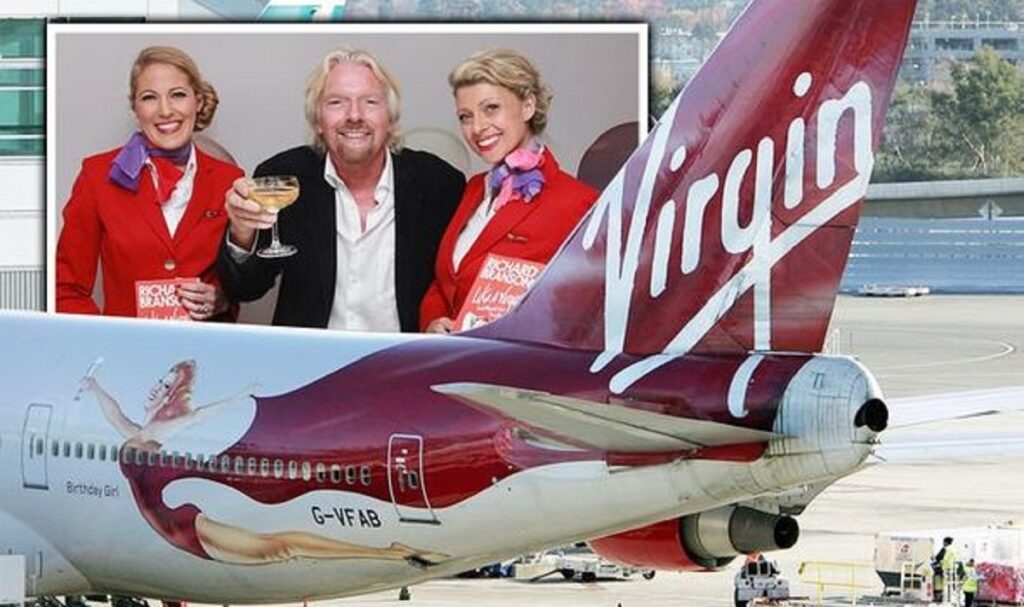
Richard Branson got stuck on an asphalt road as he tried to leave Puerto Rico for the British Virgin Islands. He had been separated from his girlfriend for three weeks and his escape was over.
He continued: ‘I don’t know what I’m going to do in this situation, but I’ve got to go and say what it is.
He calculated how much it would cost to charter a plane to the BVI, and then, after all the costs were pooled, how many hours it would cost each passenger.
It was Virgin Atlantic’s first flight, and then he grabbed the hold, sold tickets, walked down the aisle while the plane was on the ground, and walked up the aisles while it was on the ground.
Branson told the story last week at Virgin Atlantic’s annual conference in New York, where more than 1,000 of the world’s most successful entrepreneurs and business leaders gathered to celebrate the 50th anniversary of his company’s maiden flight. Perhaps it was because, after a charter flight to the British Virgin Islands, he decided to return to England and call Boeing to ask if he could buy a used 747. He asked the company he had spoken to on the phone, Boeing, which company they were with, and they said yes.
But it was the humour and genuine humanity at every step that struck me as he told his story of chartering his first plane and starting a full-fledged airline. Instead, it sounded honest and authentic, and when it came to building a business out of Branson’s mouth, he didn’t even have to add (seriously) crying laughter emojis.
In purely human terms, Branson has left behind the story of BA’s Christmas money and how he couldn’t leave it at the end of his first flight to London.
Virgin Atlantic is a company whose roots lie in the notion of thwarting opportunity, and here’s an abridged version of the story. In the 1990s, British Airways went so far as to have a team illegally access Virgin’s digital information. Virgin Atlantic customers posing as Virgin on British Airlines were then rebooked and phoned to say their flights had been cancelled. Even when the fleet was significantly smaller than almost all of its competitors, Virgin struggled to remain a competitor.
British Airways has been taken to court where it won the biggest defamation case in British history. Against all odds, they did not relent in their claim that British Airways had illegally tried to force them out of business.
Virgin then took nearly $1 million in damages and distributed it evenly among its employees. Apart from Branson talking about the development of Virgin Atlantic, what struck me was that it was built by one of the world’s most successful entrepreneurs and entrepreneurs in the aerospace industry. He had already offered his services as a pilot as well as an entrepreneur and entrepreneur – in – residence at Virgin.
This is not the essence of entrepreneurship, but Branson is an entrepreneur who is attracted to good ideas that successfully fill the necessary niches.
When it comes to the travel industry, there are still countless ways to get there, and Branson has proven that the inspiration, even when it hits the tarmac in Puerto Rico, is to identify the shortcomings and gaping holes in the industry.





